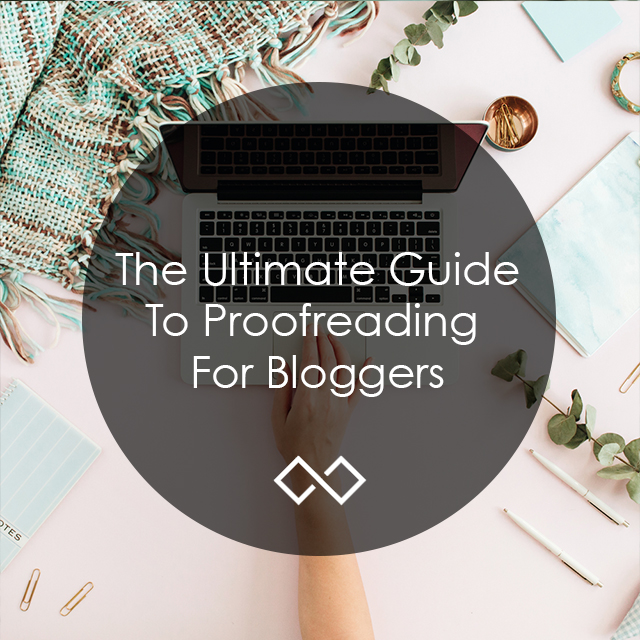TABLE OF CONTENTS
You’re done writing. Now what? One of the most important (if not the most important) parts of writing is the process after you write, the editing and proofreading process.
In this blog post, I will go over all the essentials you will need in order to edit your blog… and anything really.
Second Pair of Eyes
Despite everything you do and no matter how much you try, there will always — ALWAYS — be issues with text. Someone will find a misplaced comma, a split infinitive or a preposition hanging at the end of a sentence.
When you’re writing, the best editorial practice is to hand it off to someone else, so you can hear their input.
Comma Splices
Commas, commas, commas… they are the one thing that always seems to stand out and can get in the way of a sentence becoming perfect. A misplaced comma could disrupt the meaning of your text, or too many commas can make your writing sound like it was written by William Shatner.
The best way to get rid of commas that aren’t needed is to read your work aloud. You will naturally add the pause when you speak, and this can help you get rid of pesky comma splices.
Prepositions
This may sound blasphemous, but don’t worry about ending sentences in propositions. No need to waste your time on an outdated grammatical concept.
Passive Voice
See “Propositions” above.
Use “And” Properly
And is used to combine two clauses, each clause should be connected in some way (and should ideally be connected in more ways than just an “and” between them). Too many times I have seen “and” used to combine to unlike ideas such as:
- Tony went to the store, and he tied his shoes.
Sure, this is a sentence, but these two clauses cannot logically be combined. These are two different sentences, each needing more context than an “and” can serve.
When using “and” make sure your sentences can be combined, and that your sentence is relevant.
Concision
When going over a sentence, know your sentence. What this means is you need to know what each sentence’s purpose is, i.e., what is trying to be said. Cut out all unnecessary words and phrases. When eliminating the unnecessary words and phrases, notice how your sentence now looks fit and can deliver its message more succinctly.
Common unnecessary words and phrases according to William Strunk Jr. and E.B. White in their work, The Elements of Style are:
- The fact that
- A number of
- Who is
- Which was
Style Guide
Depending on your wants, whether you’re a writer for literary publications, a reporter for a news journal, or a blogger; each professional should have a writer’s guide. A guide will help you clear up any confusion.
- If you’re working in publication, The Chicago Manual of Style
- If you’re working in journalism, The AP Stylebook
- If you’re working in a university for English, The MLA Style Manual
- If you’re everyone on this list, The Elements of Style by William Strunk Jr. and E. B. White.
Each style book is helpful in its own way and will clear up any questions or concerns that you have. Get a copy in print. Trust me; it’s easier to navigate and very handy.
Remember, Language is Preference
Remember this when proofreading: language is preference. How many people do you know are hard supporters of the serial comma, familiarly known as the Oxford Comma? Or how many people do you know hate to end sentences with prepositions, hate the passive voice or despise the use of an “and” as the first word of a sentence? You know plenty of people like this, I can assure you of that.
In the end, when studying language, you learn that the purpose of language, whether it’s spoken or written, is to express a meaning that is understandable between two or more parties.
When you write a sentence with an “and” in the beginning, with or without a serial comma and with a preposition at the end, if the meaning of the sentence is understood, then your sentence and way of communicating have been understood.
Language usage is a social contract, as British comedian and commentator Stephen Fry said in his blog post, “Don’t Mind your Language…”
“There no right language or wrong language any more than are right or wrong clothes. Context, convention, and circumstance are all.”
Don’t be fooled into thinking that there’s a right way or wrong way to communicate or write. If you assume that, then remember, there would be no Shakespeare, no Milton, no Avant-garde artists, no innovators of language. There would be no innovation. And, in a world like that, who wants to read, let alone live.
Transformative Language
Language is not fixed. Despite the almost written-in-stone quality the dictionary seems to have, language is always transforming and changing. Words are being created, forgotten and used in new ways and new forms every day.
There was a time without a dictionary.
Proofreading is one of the most important parts of the writing process. It is when you can sweep away the extra, useless adjectives, the comma splices; it’s when you can dust for clarity.
Need help with your marketing? Or maybe how to create catchy titles for those blogs? Let’s chat!
Get in touch
Schedule your complimentary call with us today!






